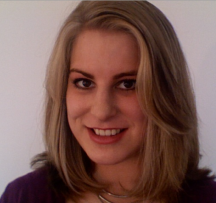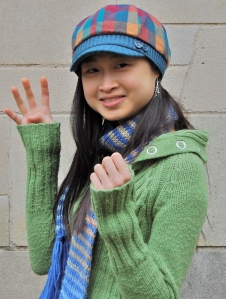
This week, the we’re answering two questions! They come from Miss Rae, who asks:
What advice do you have for a writer trying to write a fairy tale adaptation? Do you have any good resources for such projects?
and Marina, who asks:
What do you think are some of the best, or your favorites, of the fairytale retellings?
~~~

Fave fairy tale tellings (I have a lot):
– ELLA ENCHANTED by Gail Carson Levine (Cinderella retelling) <– DUH (I’m channeling my inner Charlie Sheen)
– THE GOOSE GIRL by Shannon Hale (The Goose Girl retelling) <– I wrote a recommendation for it because it’s amazing!
– EAST by Edith Pattou (East of the Sun, West of the Moon retelling) <– read this YEARS ago, but I remember loving it
– SPINDLE’S END by Robin McKinley (Sleeping Beauty retelling) – Also read this years ago
– BEAUTY by Robin McKinley (Beauty and the Beast retelling) – And again, read this years and years ago, but it is seriously amazing
– ROSE DAUGHTER by Robin McKinley (Beauty and the Beast retelling) – Yes, she wrote TWO Beauty and the Beast retellings. Honestly can’t remember which one I love more
– SHAPESHIFTER by Holly Bennett (Irish folktale/legend retelling of Finn mac Cumhail) <– loved this so much I wrote a book recommendation!
– WINTER ROSE by Patricia A. McKillip (a Tam Lin retelling) – Beautiful prose, wonderful characters, and just all around stunning!
– Oh, and last but definitely not least, QUEEN OF GLASS by the very lovely Sarah J. Maas (a Cinderella retelling) – It is FULL of #winning! But most of you already know that!
–Vanessa Di Gregorio
~~~
 Ella Enchanted by Gail Carson Levine (Cinderella). I echo Vanessa on this one; Ella is one of the most memorable heroines ever, and this story is so full of humor and heart I think it might be my most favorite.
Ella Enchanted by Gail Carson Levine (Cinderella). I echo Vanessa on this one; Ella is one of the most memorable heroines ever, and this story is so full of humor and heart I think it might be my most favorite.
Confessions of an Ugly Stepsister – Gregory Maguire (Cinderella). I love this one because I like twist endings, and I think he took this in a supremely unique (and disturbing) direction.
In the Forests of Serre by Patricia McKillip (Baba Yaga and the Golden Bird) – I read this one recently but it totally captivated me. Patricia’s portrayal of Baba Yaga was creepy and yet comforting; she was true to legend and also part of the circle of magic, a take I loved.
Snow, Glass, Apples by Neil Gaiman (Snow White) – This is part of a short story collection, and I bought the whole book just to have it. Snow White is undead and the ‘Evil’ Queen is the heroine. So creepy, so unique, so awesome.
-Savannah Foley
~~~
 I’m seconding V on THE GOOSE GIRL. I was absolutely enchanted by it, and never wanted it to end!
I’m seconding V on THE GOOSE GIRL. I was absolutely enchanted by it, and never wanted it to end!
THE BLACK SWAN by Mercedes Lackey is another favorite of mine. It retells the Swan Lake legend from the point of view of Odile, the “evil” black swan. I think I was 12 or 13 when I first read the book (though it’s an adult fantasy), and seeing Lackey boldly and beautifully take on the Swan Lake legend was a huge influence on my later decision to retell Cinderella and write QUEEN OF GLASS.
I recently read WILDWOOD DANCING by Juliet Marillier and thought it was an absolutely lovely retelling of The Twelve Dancing Princesses (set in Transylvania!!). Any of Robin McKinley’s retellings are thoughtful and magical, and Neil Gaiman’s “Snow, Glass, Apples” is beyond phenomenal. I’ve heard great things about Margo Lanagan’s TENDER MORSELS, a dark retelling of the Snow White and Rose Red legend, and Angela Carter’s “The Bloody Tower” (collection of stories).
In the research side of things, check out Joseph Campbell’s HERO WITH A THOUSAND FACES (I think in order to retell fairy tales, you should first know where they come from, why they exist, and how they are structured and categorized), and if you’re looking into doing a more female-oriented retelling, check out FEARLESS GIRLS,WISE WOMEN, AND BELOVED SISTERS by Jane Yolen.
I’m sure I’m missing a bunch of fantastic books, though!
As for writing retellings…I wrote a post about it here.
-Sarah Maas
~~~
 I am also jumping on the ELLA ENCHANTED bandwagon. That book basically defines my childhood. I’ve read it so many times my copy is yellowed, dog-eared, and one of the pages actually fell out. I had to tape it back in. I wanted to marry Char… and I kind of still do.
I am also jumping on the ELLA ENCHANTED bandwagon. That book basically defines my childhood. I’ve read it so many times my copy is yellowed, dog-eared, and one of the pages actually fell out. I had to tape it back in. I wanted to marry Char… and I kind of still do.
–Sammy Bina
~~~
 There are already so many great recommendations from the other LTWF girls that I won’t add any more! I’ll try tackling the first question instead. I’m afraid I don’t really have a resource for that sort of project (other than the link to Sarah’s great article!), but I do love a good retelling, and I can think of a few pointers…
There are already so many great recommendations from the other LTWF girls that I won’t add any more! I’ll try tackling the first question instead. I’m afraid I don’t really have a resource for that sort of project (other than the link to Sarah’s great article!), but I do love a good retelling, and I can think of a few pointers…
First off, bring something unique to the retelling. That’s pretty obvious, huh? But nowadays, that’s actually pretty hard! In my mind, there are two kinds of retellings…those that stick with the fantasy setting and those that bring the story into modern times. If you’re trying to write the latter kind of retelling, then you’ve pretty obviously already got your “twist.” In that case, I’d try to remember the theme of the original fairy tale. Also, what are the main symbols? (Cinderella: glass slipper, midnight; Little Red Riding Hood: wolf, red hood; Beauty and the Beast: roses, the ‘beast’) Incorporate those into your story, but in a fresh way. And don’t be afraid to add a new symbol or motif that is all your own.
If your retelling is of the fantasy sort, it can be harder to stick with the original story without making your story…well, basically the original story. It becomes even more important to bring something new to the telling. Sometimes, this can be as simple as making Cinderella a tomboy or as big as making her an assassin ;P Remain true to the original story (unless, of course, your purpose is to twist it, and then by all means change that story around!), but breathe fresh life into it.
A fairy tale retelling is a truly beautiful thing when done well. I wish you the best of luck!
-Kat Zhang
~~~
What do you think? Favorite fairy-tale retellings? Any tips on writing one? Let us know!
Tags: QOTW

![]() If I could live a character’s life for one day, I’d definitely want to be Menolly from DRAGONSONG (by Anne McCaffrey). I realize I’m probably dating myself with this choice, BUT…I can’t help it. My first world-love is still my biggest. The world from DRAGONSONG has everything I’d like to see: Dragons? Check. Unique culture? Check. Danger? Check. Scale and depth? Yep. Handsome guys? OH YEAH. Yes, I realize now that Menolly’s character is something of a Mary Sue, but as a lonely, self-conscious, painfully shy 13-year-old, I needed that kind of character to look up to.
If I could live a character’s life for one day, I’d definitely want to be Menolly from DRAGONSONG (by Anne McCaffrey). I realize I’m probably dating myself with this choice, BUT…I can’t help it. My first world-love is still my biggest. The world from DRAGONSONG has everything I’d like to see: Dragons? Check. Unique culture? Check. Danger? Check. Scale and depth? Yep. Handsome guys? OH YEAH. Yes, I realize now that Menolly’s character is something of a Mary Sue, but as a lonely, self-conscious, painfully shy 13-year-old, I needed that kind of character to look up to. I’d want to be Sabriel (from SABRIEL by Garth Nix) for a day! Kick-ass necromancy skills, a talking/sarcastic cat, a super-cool sword, and a killer outfit…? Totally my thing. I’d rock that bandolier of bells so hardcore.
I’d want to be Sabriel (from SABRIEL by Garth Nix) for a day! Kick-ass necromancy skills, a talking/sarcastic cat, a super-cool sword, and a killer outfit…? Totally my thing. I’d rock that bandolier of bells so hardcore. Wow, what a difficult question. There’s so many worlds I’d love to get into. Is Hermione a cop-out? 😉 I want to transfigure something, just once! And now for my real answer… definitely Thursday Next, of the Thursday Next series. A literary detective hopping from book to book to solve mysteries in a world where time travel exists and you can literally get inside the pages of your favorite novel? Sign me up for Spec-Ops 27; then I could visit ALL the worlds!
Wow, what a difficult question. There’s so many worlds I’d love to get into. Is Hermione a cop-out? 😉 I want to transfigure something, just once! And now for my real answer… definitely Thursday Next, of the Thursday Next series. A literary detective hopping from book to book to solve mysteries in a world where time travel exists and you can literally get inside the pages of your favorite novel? Sign me up for Spec-Ops 27; then I could visit ALL the worlds! I’d want to be Lyra Belacqua from HIS DARK MATERIALS trilogy by Philip Pullman for a day. I mean, who DOESN’T want a daemon companion? Plus, Pantalaimon is amazing. And cool. He’s the only daemon I’d ever want. And let’s not forget that I’d live in a sweet alternate universe – one way more exciting than our plain old one! Witches, talking polar bears (one I could RIDE on, which is just icing on the cake) and a nickname like Silvertongue? YES PLEASE!
I’d want to be Lyra Belacqua from HIS DARK MATERIALS trilogy by Philip Pullman for a day. I mean, who DOESN’T want a daemon companion? Plus, Pantalaimon is amazing. And cool. He’s the only daemon I’d ever want. And let’s not forget that I’d live in a sweet alternate universe – one way more exciting than our plain old one! Witches, talking polar bears (one I could RIDE on, which is just icing on the cake) and a nickname like Silvertongue? YES PLEASE!























 So, the villain of my life’s movie has this theme song: “Space Dementia” by MUSE. It’s deliciously creepy and dark, but hauntingly lovely at the same. A truly tormented villain in my life’s movie. 🙂
So, the villain of my life’s movie has this theme song: “Space Dementia” by MUSE. It’s deliciously creepy and dark, but hauntingly lovely at the same. A truly tormented villain in my life’s movie. 🙂


 LTWF Facebook
LTWF Facebook LTWF Twitter
LTWF Twitter